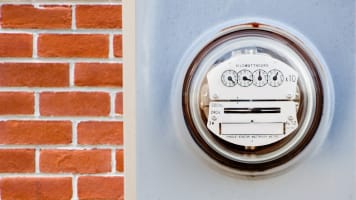Heat Pumps: A Sustainable Comfort Solution
There’s no doubt about it, heat pumps are rising in popularity as an energy-efficient electric alternative to traditional fossil-fuel burning gas furnaces. But what are heat pumps, why is there so much interest in them now, and what should you – as a homeowner – know before taking the leap?
As an industry leader with award winning heat pumps, we get the same two questions often:
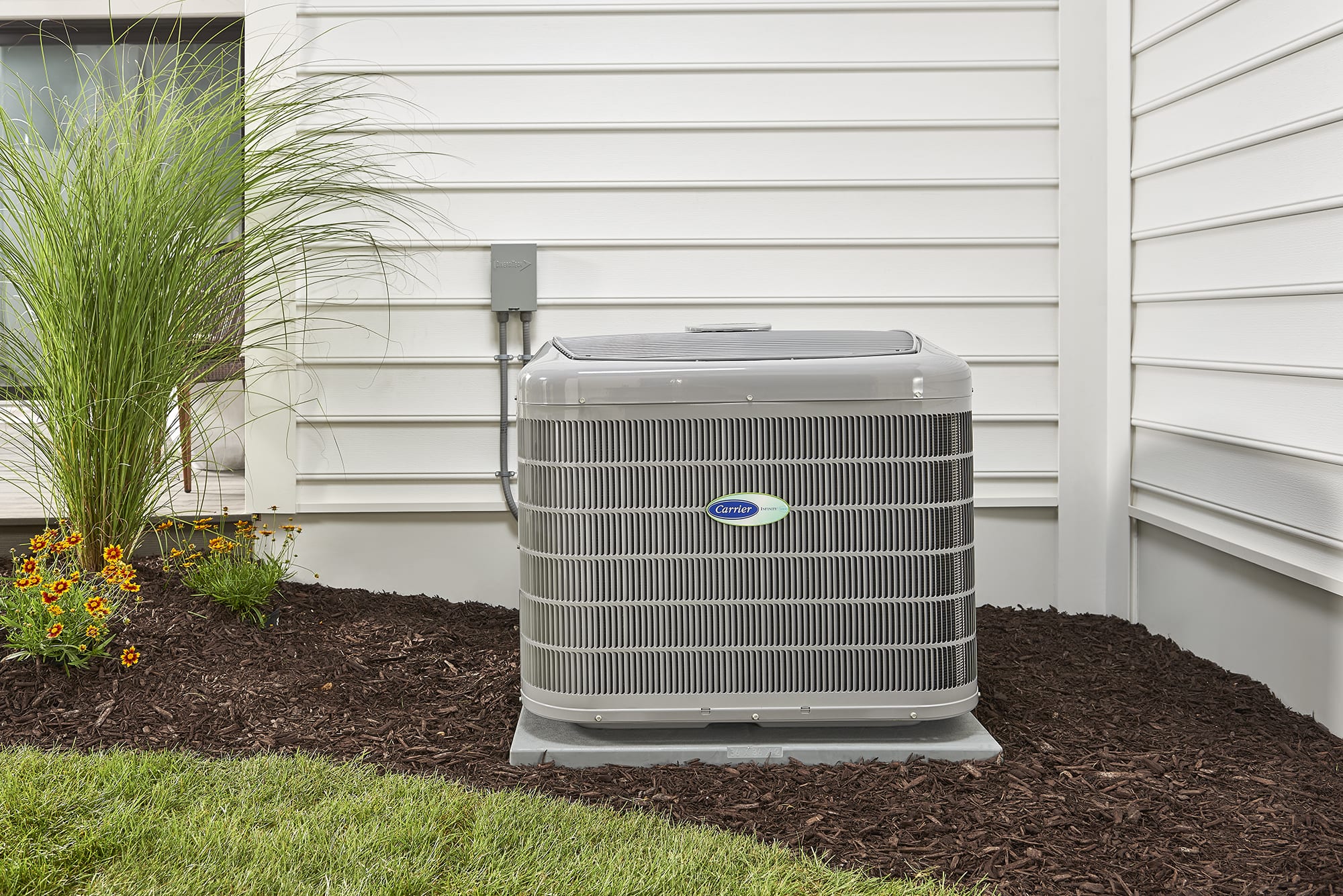
A heat pump is part of a home heating and cooling system and is installed outside your home. Like an air conditioner such as central air, it can cool your home, but it’s also capable of providing heat. In cooler months, a heat pump pulls heat from the cold outdoor air and transfers it indoors, and in warmer months, it pulls heat out of indoor air to cool your home. Heat pumps are powered by electricity and do not burn fossil fuel like furnaces do. Learn more about what is a heat pump.
The price of a heat pump installation depends on a variety of factors such as the local market, condition and size of the home, type of system chosen, and area climate, but one thing is for certain – there are a number of ways to make installation costs more manageable below. Learn more about cost of a heat pump.
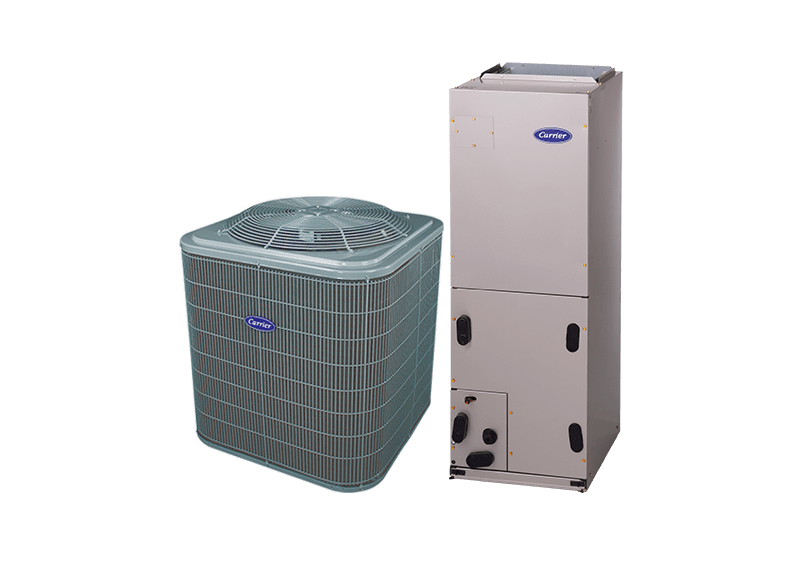
Carrier’s latest fan coil launch, the 115V, means that in milder climates you don’t have to make expensive updates when switching from a gas furnace to a heat pump! Gas furnaces run on a 115V line while heat pumps traditional fan coils run on 230V lines. Carrier is the first manufacturer to offer a 115V line fan coil so your costs changing from a furnace to an all-electric fan coil plus heat pump system are significantly reduced, saving you money and frustration! Just another way Carrier is putting our homeowners first and leading the industry towards a more sustainable future.
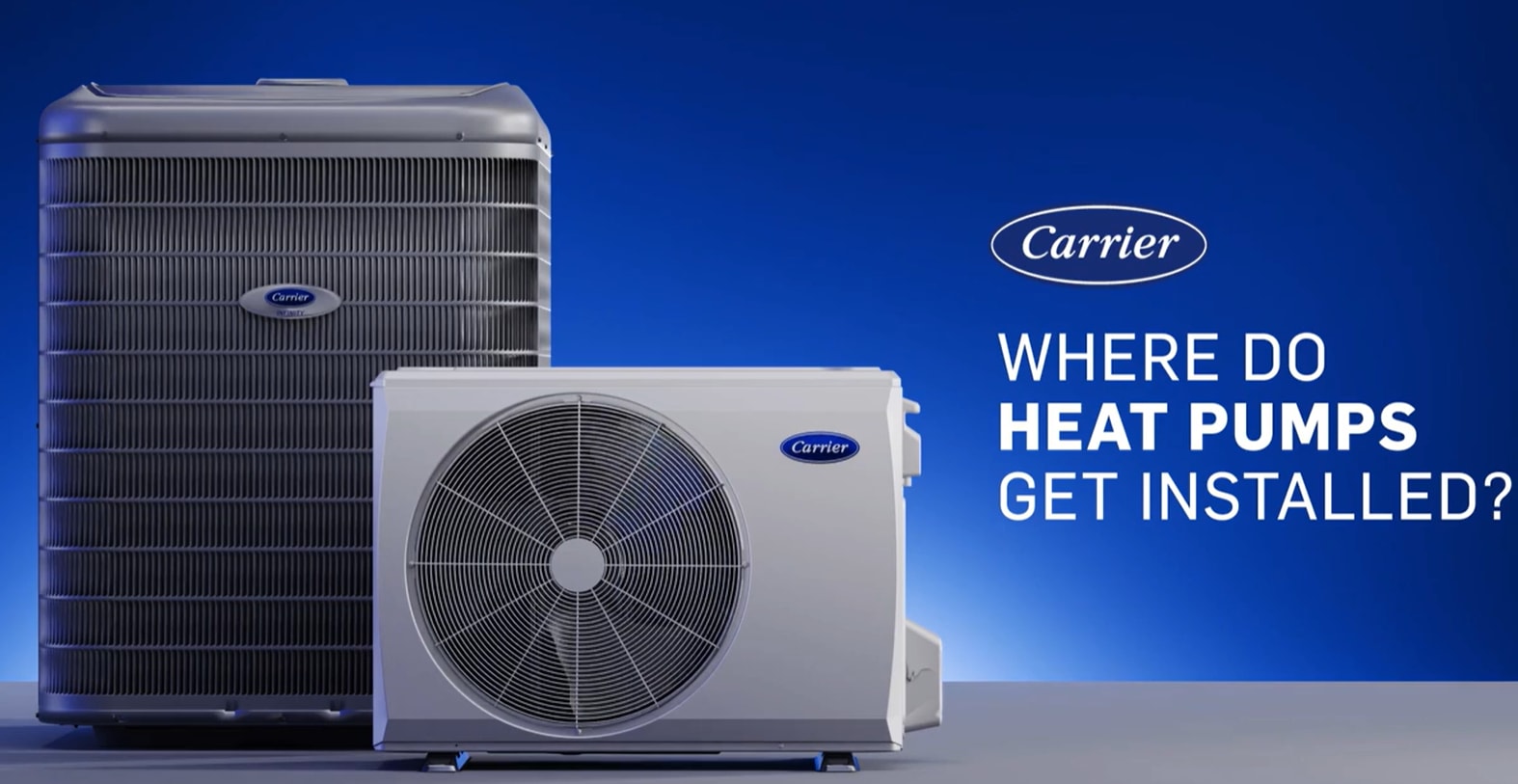
Heat pumps are installed outside your home, just like your air conditioner. In fact, many homeowners can’t tell the difference between a traditional heat pump and an AC because they look so much alike and have similar hook-ups.
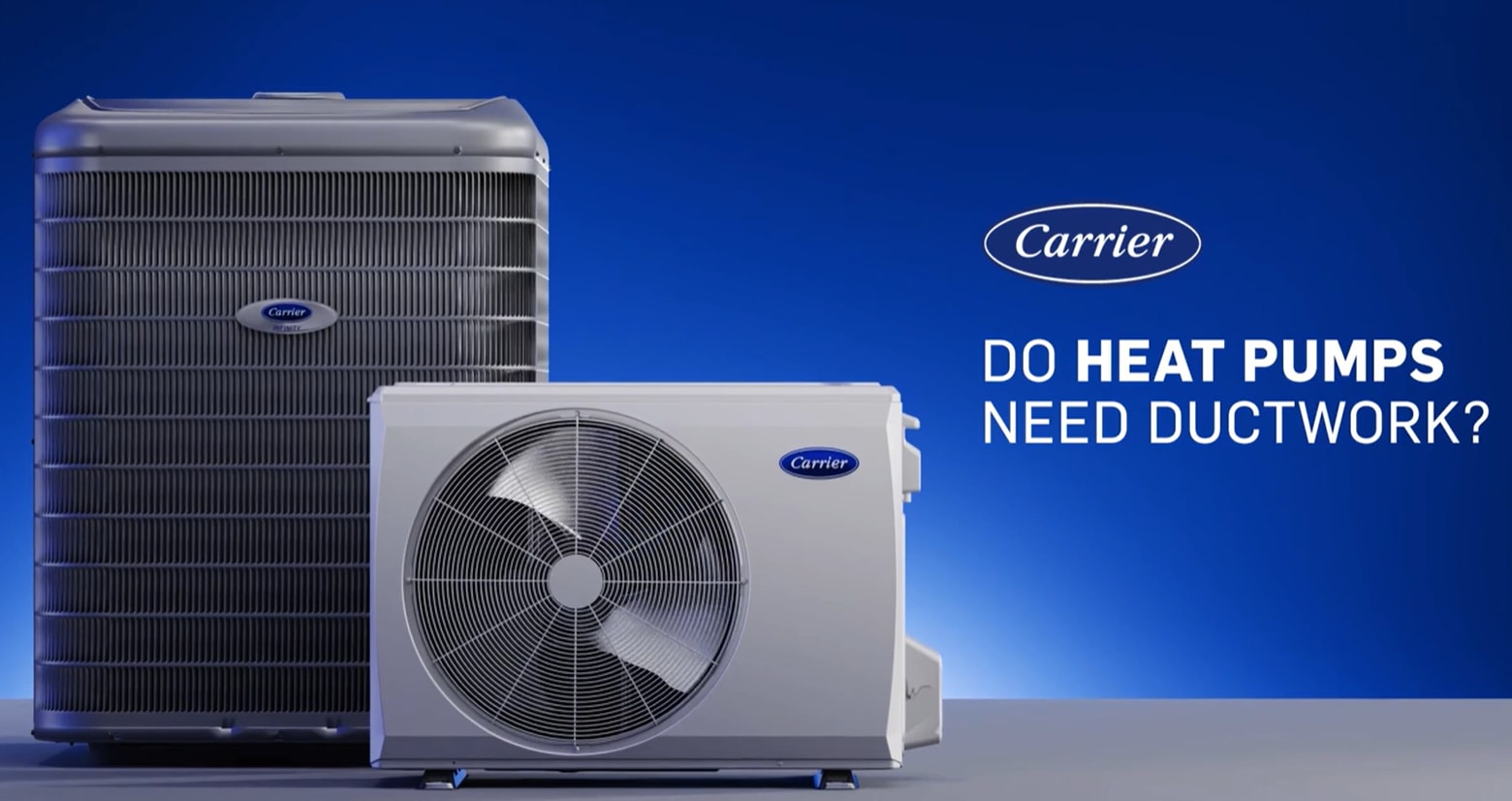
It depends! Heat pumps can use your existing ductwork if you opt for the whole-home system solution, just like your air conditioner and furnace do. Your dealer will inspect to see if you have drafty ducts and may advise on how to improve your energy-efficient and temperature consistency.
If you don’t have ducts, Carrier’s ductless heat pump systems are the solution for you! Pairing a ductless high wall unit, console, or cassette with an outdoor single-zone or multi-zone heat pump brings you customizable comfort with unintrusive installation and no ductwork required.
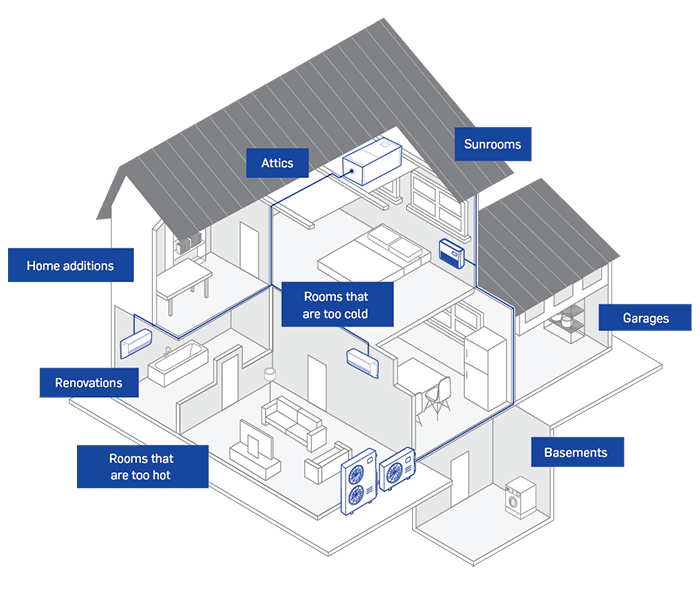

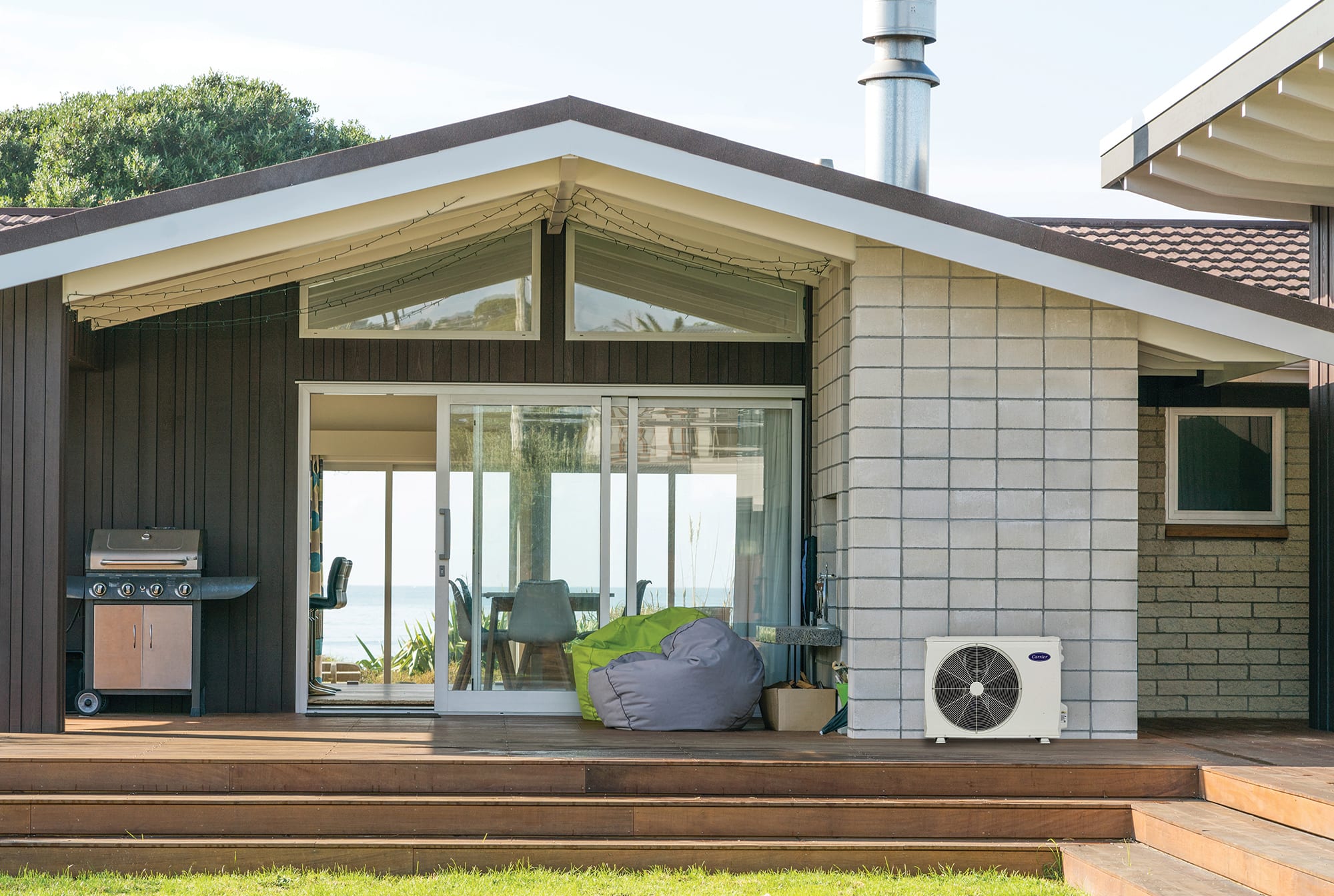
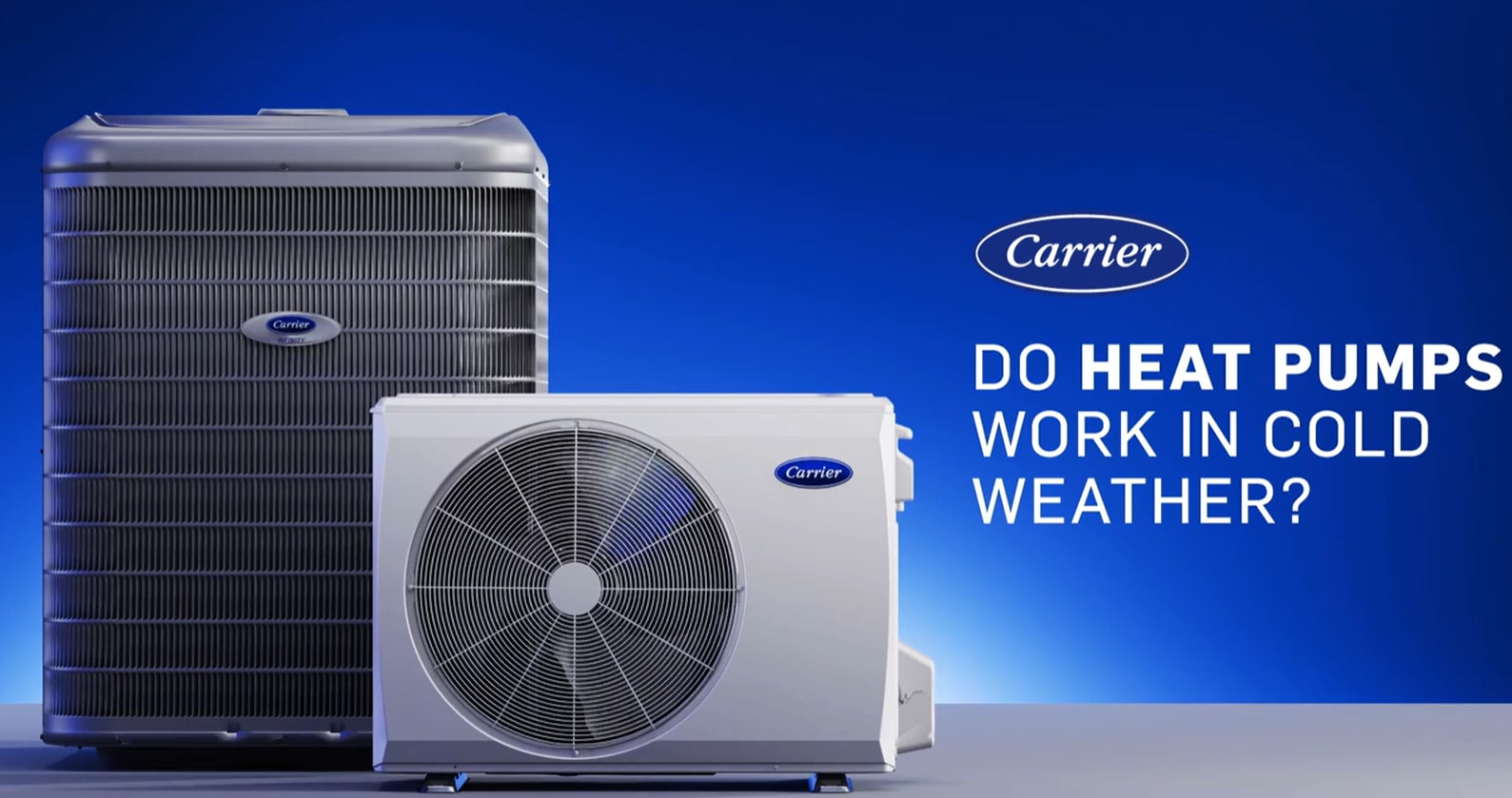
Yes. Carrier has a wide variety of heat pump options, many which heat at lower temperatures. Carrier’s Infinity® line heat pump operates down to -15 degrees Fahrenheit while all of its ductless heat pumps operate down to –22 degrees Fahrenheit. New heat pumps that can operate at 100% heating capacity in harsher climates are actively being developed and will be available for order in the future.
In colder regions, heat pumps can be combined with furnaces for energy-efficient heating on all but the coldest days. When the temperature outside drops too low for the heat pump to operate efficiently, the system will default to the furnace to generate heat. This system is referred to as a dual fuel system and is energy efficient and cost effective.
of a heat pump?
The average lifespan of a well-maintained heat pump is 15 years. With varying conditions and homeowner habits, it could live well beyond that.
As the name implies, electrification refers to the process of replacing fossil fuel or natural gas burning equipment with similar electric equipment, appliances, or systems such as Carrier heat pumps or ductless units. , Heat pumps can reduce carbon dioxide emissions by 38-53% over a 15-year period and reduce 20-year global warming potential by 53-67% when compared to a gas furnace.1 Additionally, high-efficiency electric units can save homeowners on utility costs.
my heat pump maintained?
Carrier Pros


At Carrier, we are committed to building a sustainable future for all. We strongly believe that protecting our planet is the right thing to do. We understand the impacts our industry has on the environment and are committed to being stewards for the long haul. We go beyond minimum regulatory standards with our products and our efforts throughout the industry to ensure we are taking care of our planet.


- Learn the difference between Heat Pumps vs Air Conditioning
- Learn the difference between a heat pump vs furnace
- Learn about Heat Pump Efficiency and SEER Ratings
- 3 Reasons To Consider A Heat Pump
- Discover heat pump tax credits
- Get in the know on cold climate heat pumps


